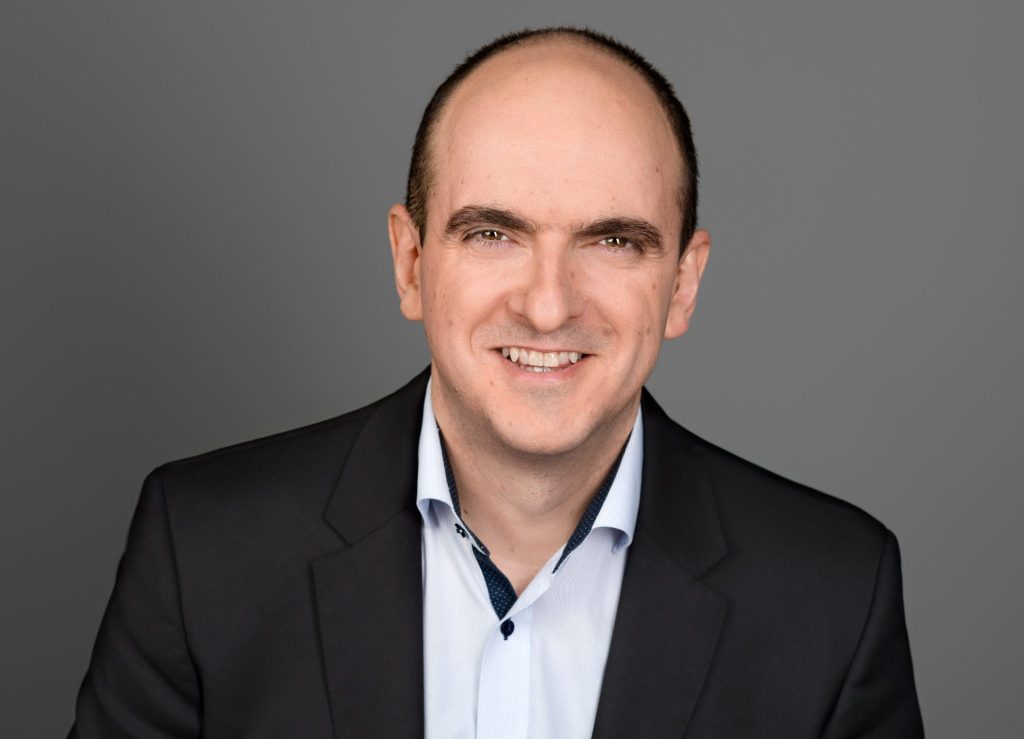A 2018 graduate of ESMT Berlin in Germany, Peter Minev reflects on his executive MBA experience
‘It’s like a magic box with thousands of amazing tricks which you can use whenever you need them,’ says Peter Minev of his executive MBA experience. In the below interview, the ESMT Berlin graduate outlines how he balanced work and study alongside his family commitments, and why he thinks an EMBA can help business leaders to handle adversity.
Tell us about your current role
I’m leading the Platform Engineering division at Careem [a Dubai ride-hailing service acquired by Uber in 2019] which has the primary responsibility to deliver the vision of Careem to become the super app of the Middle East.
When and where did you achieve your MBA?
I graduated from my EMBA study at ESMT Berlin in 2018.
You came from an engineering background – what prompted you to embark on an EMBA?

I originally applied for an EMBA because I wanted to move from just having strong engineering skills to also having the more general skills needed to run a company and a team, and move into a more general management role – not just one with an engineering focus.
My EMBA study helped me establish the German engineering branch of Careem greatly and make it a key part for the company’s success. The reason why it helped me so much is that the journey of building the company in Germany required many skills beyond engineering management, including the marketing and establishment of a strong engineering brand, organisational design and strong financial skills needed to establish and manage a successful EU subsidiary of a company headquartered in Dubai.
What is the most interesting thing you learnt from your EMBA?
I can’t point to one single thing, and I think that’s the beauty of the EMBA study – that you learn so many new and valuable things. I think people should not expect that they will learn one golden secret during their study, a silver bullet that will skyrocket their careers or businesses. Rather, EMBA study offers a solid foundation of knowledge and skills. Students can then access any of these skills, or pieces of knowledge, whenever they need them. It’s like a magic box with thousands of amazing tricks which you can use whenever you need them.
How did you find balancing work and study while completing your EMBA?
It was extremely difficult. Both my job and the EMBA study were very demanding. At the same time, I have a family and two children, I finished and published my book, Building Tech, and, in parallel to all that, I was helping my wife to start her own company.
The key for me during that period was very strong prioritisation of my time. I also ensured that the few moments that I was able to spend with my children were completely dedicated to them – no phone calls, emails, or any other distractions.
How has the EMBA made a difference in your life? In particular, your career path and leadership journey?
It broadened my perspective on a wide range of management areas and professional topics. A significant part of this stemmed from the experienced professors at ESMT Berlin. At the same time, a lot also came from the diversity of the students – they came from many different professional areas and helped enrich my perspective greatly.
What issues do you think are set to make the biggest impact on business leaders over the coming five years?
I think the biggest impact will come from the speed of the technological advancements and their impact on the business. Many business frameworks are based on the premise of slowly moving markets, for example those which involve stages of detailed market analysis, thorough planning and long execution phases before their eventual delivery to the market.
In today’s world, the speed of technological advancements are completely changing that paradigm. You might have a very successful product-market fit, but instead of enjoying many years of profitability, you might have to completely pivot the business and your product strategy just one year later. I’m not referring to one particular industry – this applies to many, be it transportation, food, healthcare and so on.
The speed of change we see across so many industries means that business leaders must rethink many of the existing management frameworks and tools they use in order to adapt. I think that shift will the biggest challenge for the business leaders in the coming five years. In the next five to 10 years, I think the automotive and pharmaceautical industries are next in line for massive disruption, after the disruption that we are currently seeing in the transportation and payment industries.
Do you feel optimistic that business leaders have the agility to thrive in adversity? How does an MBA-level education support them in rising to the challenge?
Absolutely! EMBA study provides a large range of tools, techniques and knowledge that definitely helps business leaders to thrive in adversity. A significant part of the EMBA education is focused on a detailed analysis of real-life business cases that relate to business crises or major adversities, and involve approaches and techniques that help business leaders to learn how to handle complex situations. So, I definitely think that an EMBA is a great way to prepare business leaders for handling adversity.
What would be your advice to someone else considering an EMBA, especially if moving from a different sector?
I think that an EMBA study is particularly helpful for those from different sectors. For example, if you come from engineering or legal background, its curriculum will help you to broaden your arsenal of management and business skills beyond your immediate area of expertise. This will ultimately prepare candidates to grow in their careers and take roles which require a broader set of skills and knowledge, involving business strategy, finance, organisational design and many other areas that form part of the EMBA curiculum.



